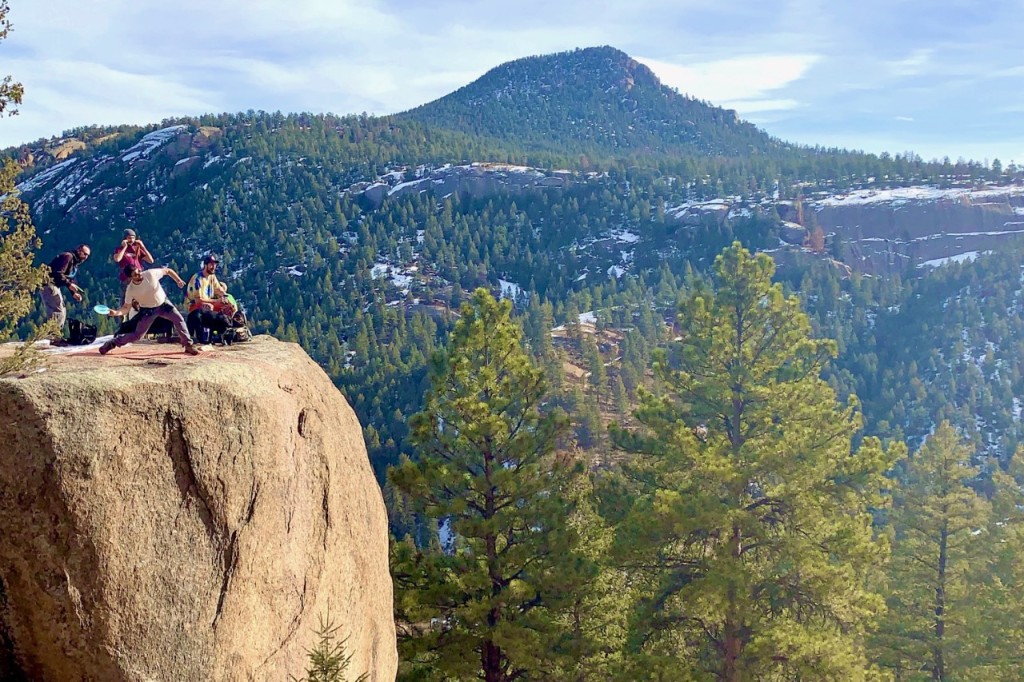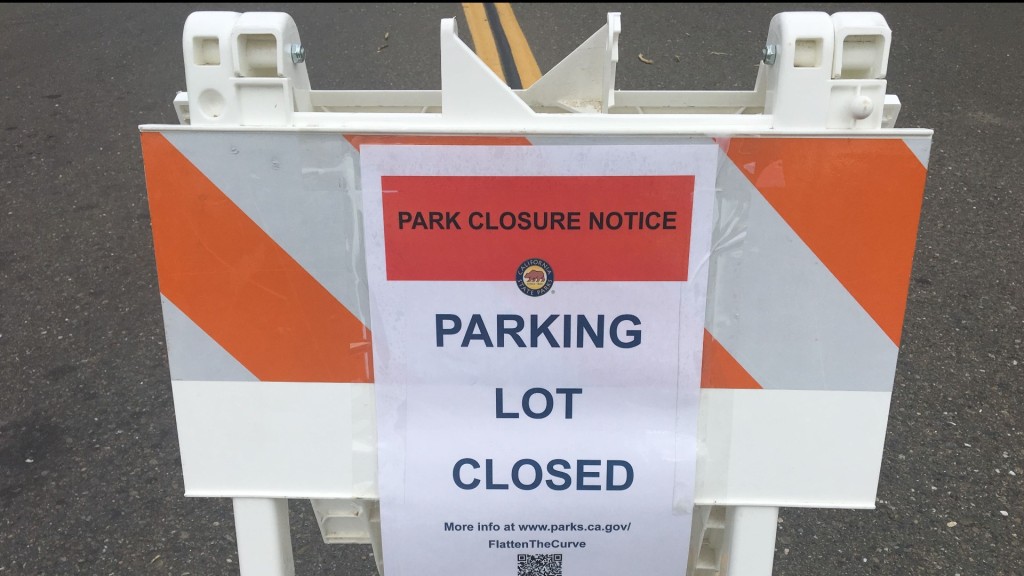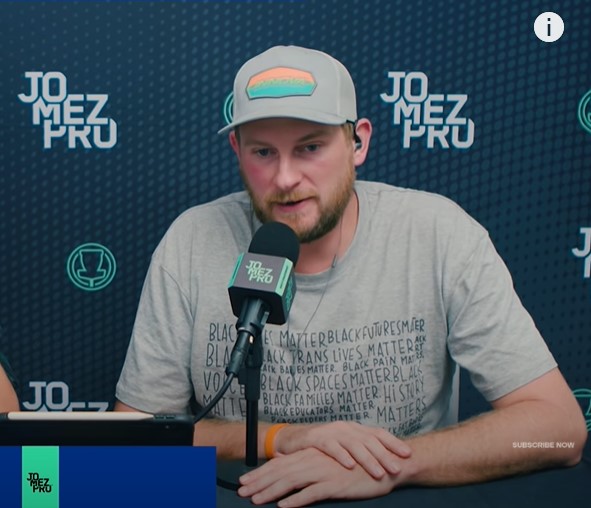By Josh Woods ~

Part of the joy of disc golf comes from the fear of trying it. Leaving our comfort zones and walking onto the course can be daunting. “Can I do this? I got this. Nope, I can’t do this. What am I doing!?”
All of us, from top professionals to first-time players, deal with insecurities as we navigate a course. And when we overcome those fears and throw a great shot, it feels fantastic. A shared sense of vulnerability may also explain why camaraderie and friendships are so quick to grow on disc golf courses.
While mild unease may heighten the pleasure of a well-thrown shot and encourage group solidarity, too much fear can hamper performance and create conflicts in groups.
Getting Political Over Covid-19
Fear was running higher than usual in disc golf social media throughout much of 2020. In a recent study of 123 disc golf groups on Facebook, a graduate student and I found that social media have had a mostly positive, integrative influence on the disc golf movement. But we also noticed a rise in tensions in early 2020, much of it involving the Covid-19 pandemic. This study will appear in a forthcoming book, Emerging Sports as Social Movements: Disc Golf and the Rise of an Unknown Sport, to be published by Palgrave Macmillan later this year (1).
As the nation responded to the coronavirus, a divide formed between players who followed safety guidelines and those who flouted them. When some courses were closed due to crowding, disputes flared and leaked onto social media. These tensions were part of a broader societal conflict that was playing out daily across the US between political opponents.

On one hand, disagreements are nothing new to disc golfers. Prior to the pandemic, our study uncovered dozens of minor dustups. Players accompanied by a dog, slow play, sandbagging and cannabis use were just a few of the controversial topics we found in the Facebook groups of local clubs.
But, aside from disputes involving Covid-19, most conflicts between 2007 and Spring 2020 were mild and rarely hinged on political issues. Thinking back on the thousands of Facebook interactions I read for this analysis, it was probably the general absence of politics and the shunning of controversial topics that most surprised me.
Avoiding tough conversations may have sheltered many groups from conflict, but it probably left them ill prepared when such discussions became inescapable.
The Race Talks of 2020
After the killing of George Floyd by police in Minneapolis during an arrest in May 2020, the topic of racial injustice increasingly surfaced in disc golf social media. For many disc golfers, these new conversations were not easy. But for months to come, they were unavoidable.
The Disc Golf Pro Tour responded to the Floyd murder by organizing two YouTube forums on diversity and inclusion, where many of the comments from the audience were contentious.
Jeremy Koling, professional disc golfer and commentator, appeared on the Jomez YouTube channel wearing a Black Lives Matter t-shirt while reporting an event. This silent, momentary act of resistance generated thousands of divisive comments, replies and emotes.

Professional disc golfer Josh Anthon became the center of a heated discussion about his “white pride” tattoo. Facebook, reddit and Twitter were ablaze with opposing views on whether Innova should cancel its sponsorship of Anthon.
The Color of Disc Golf tournament, “an event for players of color to connect, relax, and share their thoughts,” was championed as an innovative diversity project by many but demonized by some.
Sally Chatman and professional disc golfer Rebecca Cox started the organization Diversify Disc Golf that is dedicated to encouraging diversity and inclusion. The founders have been able to moderate polarization while growing a significant following and pushing for change, but they have still reported some cases of push back and trolling.
In late 2020, the PDGA began assembling the Diversity and Outreach Task Force and later launched a grant program to fund ideas for cultivating greater diversity in the sport. Once again, many reactions were bitter and polarized.
Discussions of Sexism Intensify
At roughly the same time as disc golf’s debate on racism emerged, the discussion of sexism was also on the rise.
In summer 2020, as part of its effort to promote women’s disc golf, Jomez was publishing videos of women throwing shots on its YouTube channel. Hundreds of comments were being made on these videos, but they were not being moderated. Several sexist replies were scattered across the company’s multiple social media handles. Many comments were directed to the bodies of the players rather than their performance; some replies included degrading images and memes.

Although harassment of this type had occurred before, this time it inspired a wave of articles, social media posts and podcasts and culminated with the creation of the #respectHERgame organization, which aims to reduce sexism and stop the harassment of women in disc golf.
Two Takeaways
Our study of the disruptive forces of disc golf social media has two takeaways.
1) Disc Golfers Have Problems Like Everyone Else
The disc golf community represents a microcosm of our divided society.
There is no oasis from the history of slavery in the US, nor from the racial injustice of today. Years in the making, feelings of racial resentment were brought to a boil in every corner of society during the Trump years.
Sexism exists in the disc golf community, as it does in the boardrooms of American corporations, the halls of higher education and everywhere else.
Disc golfers are not immune to worries about the fast-changing economy, nor to the feelings of distrust and bitterness between rich and poor.
All Americans inhabit a media landscape that has fractured our common understanding of truth.
The challenges that face the nation are our challenges.
2) Discussing Difficult Topics is Scary, Disruptive and We Need More of It
Controversial discussions on social media are an energy drain. Wading into these troubled waters is daunting. Fear itself – in all its complex varieties – often propels conversations off course where they devolve into ego matches and interpersonal drama.
The new ire in disc golf has alienated some people. For instance, Preston Thompson, a twelve-year veteran of the sport and an Ultiworld Disc Golf contributor, wrote about his need to leave the toxic environment of organized disc golf. In his piece, Thompson called out what he saw as injustice. In response, his vulnerable, confessional opinion piece was met with laughter and derision.
It may seem reasonable to opt out, separate or try to solve our disagreements by not talking about them. Yet, as we all know, ignoring a problem rarely fixes it. No matter how far we retreat into disc golf, our problems will still be there. And no matter how hard we try to avoid or prohibit them from our discussions, they will not go away until we talk about them.
The Future is a Downhill Putt
So, like staring down a 20-foot death putt, we have a choice to make.
We can lay up and try to forget about the issues of racism, sexism and the need for more diversity in disc golf. We can go on disregarding the facts that roughly 91 percent of disc golfers are white and 85 percent are men, and that white people have more access to disc golf courses than black people in the US.
Or we can dig in, breath out and run the putt.
That’s what groups like Diversify Disc Golf, Respect Her Game and the PDGA’s Diversity and Outreach Task Force are trying to do. These are open-minded optimists who understand the pitfalls and challenges, and they’re going for it anyway.
Lost in social media’s whirlwind of negative thoughts is the enthusiasm and good energy of those who want to share disc golf with everyone. Many disc golfers want the same thing and feel the same way. This is not about comebacks. It’s about coming together.
In the next months, Parked hopes to chronicle some of the inspiring diversity efforts of the past and learn more about what’s happening now. If you would like to talk or write about your experiences or contribute an article about how to promote diversity in disc golf, we’d love to hear from you (check out our call for contributors or contact us here).
And if you would like to design and implement a project to diversify the sport, please apply for funding from the PDGA’s Diversity and Outreach Program (for more information, click here).
The challenges may seem daunting. But then, in disc golf, as in life, sometimes the things that scare us are the most fulfilling.
Reference
(1) Woods, Joshua. “Group Integration and Disruption in Disc Golf Social Media.” In Emerging Sports as Social Movements: Disc Golf and the Rise of an Unknown Sport. London: Palgrave Macmillan. (Forthcoming in 2021).
~~~
Follow Parked on Twitter (@ADiscGolfBlog) for daily thoughts on disc golf and Facebook for article notifications. You can also subscribe to our newsletter by entering your email address below.
~~~
Parked is made possible in part by a grant from the Professional Disc Golf Association.
~~~
AUTHOR BIO
Josh Woods is editor at Parked and author of the forthcoming book, Emerging Sports as Social Movements: Disc Golf and the Rise of an Unknown Sport, to be published by Palgrave Macmillan in 2021.

Josh, I so appreciate your continued support of difficult conversations, of promoting access and equity for POC in your sport, and for your research which gives it solid grounding.
In my profession of career coaching, and as the president of the professional association, The Career Counselors Consortium, I too am aiming to lean into diversity and make DEI advocacy, awareness and support an integrated part of our organization. I believe that an accumulation of small steps, small efforts, can go a long way.
Your closing comment is so perfect, “The challenges may seem daunting. But then, in disc golf, as in life, sometimes the things that scare us are the most fulfilling.”
LikeLiked by 2 people
Thank you for this. Means a lot.
LikeLike
shared article with my Linkedin Network: https://www.linkedin.com/in/mike-plansky-2b5285b/detail/recent-activity/shares/
LikeLiked by 1 person
Many thanks. Hope you’re doing great!
LikeLike
I don’t play disc golf to be on facebook. Look around and ask if people are happier, or making progress with the method of 24/7 switched on and must see anything that could be offensive if in the wrong context, point it out and try to be a non-stop perceived flaw hunter.
People are already pretty cool on the course, even if we disagree on a few things, we all want a better drive, approach, and putt. I’d rather just play disc golf with those guys fighting for birdies with me so we can enjoy the day before we head back to whatever issues await us.
LikeLike
Four years ago, One of my best friends ask me to play disc golf, but I refuse. I didn’t know anything about disc golf at that time. Now, I am a true fan of this sport, one of my favorite thing to do in life.
LikeLike